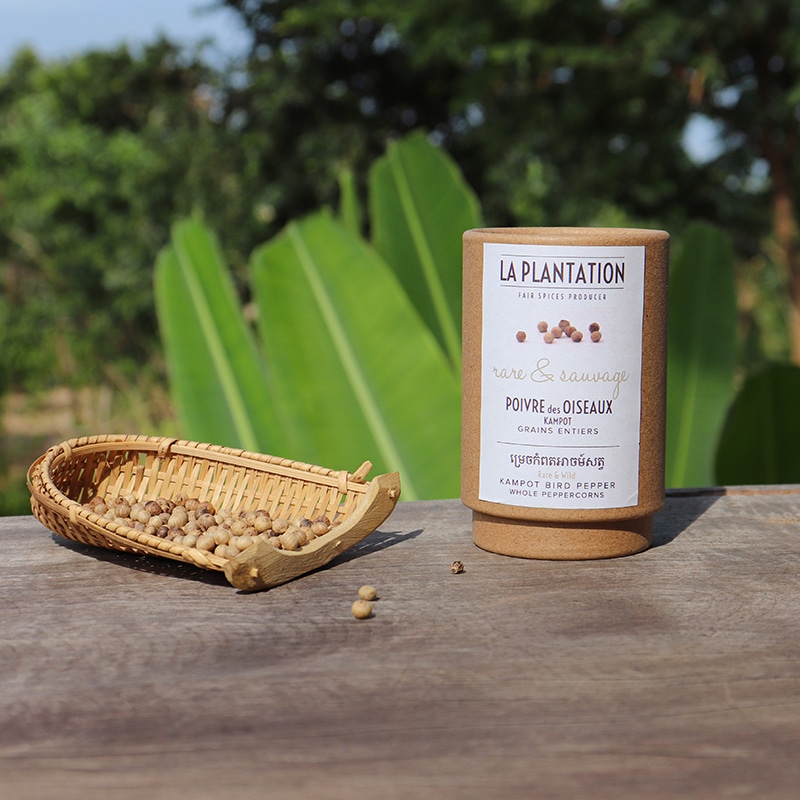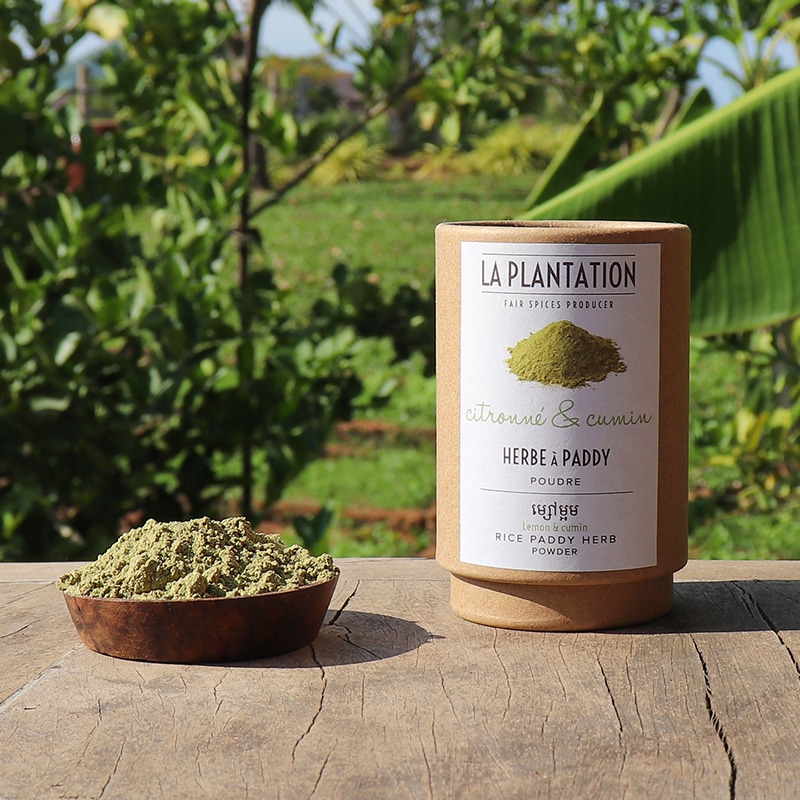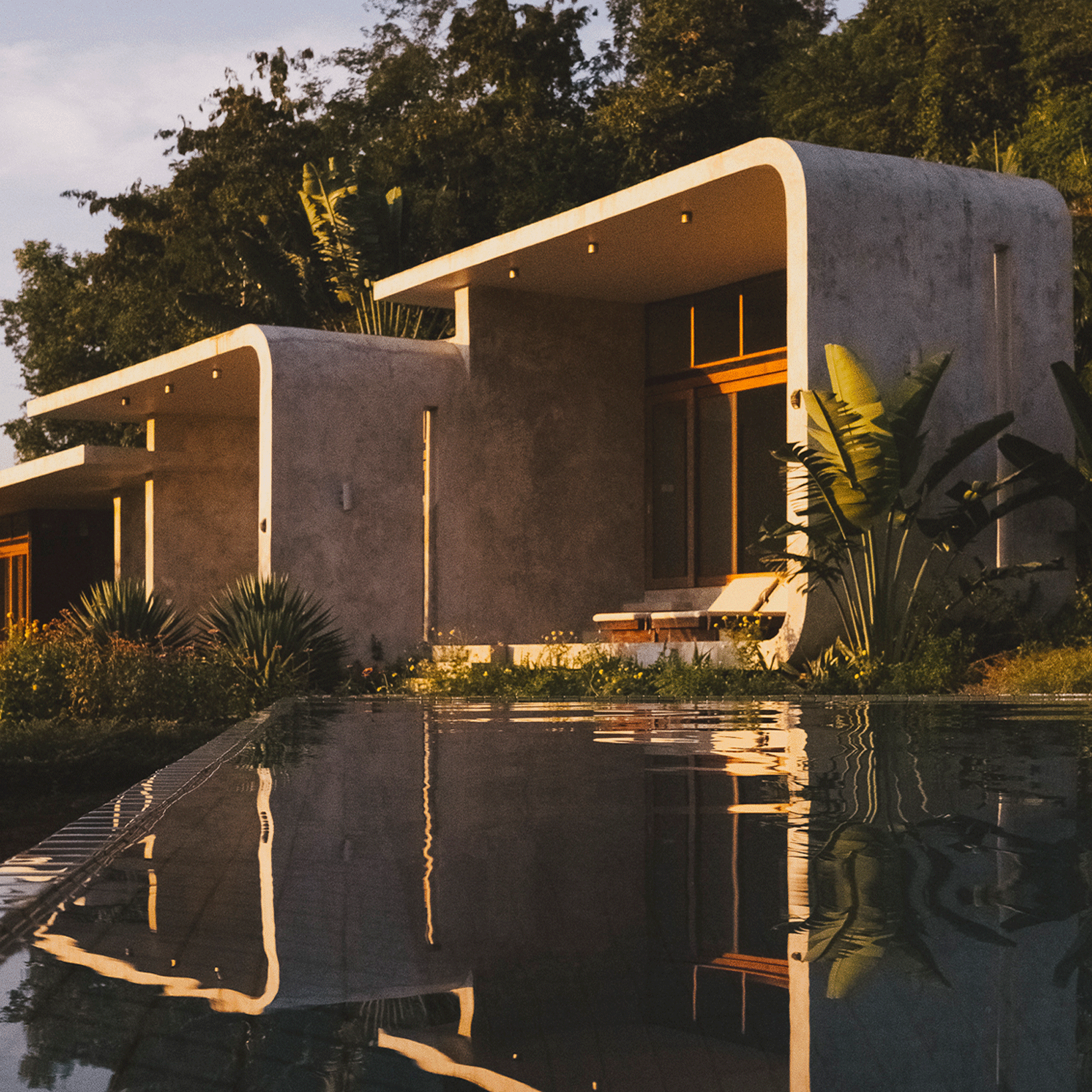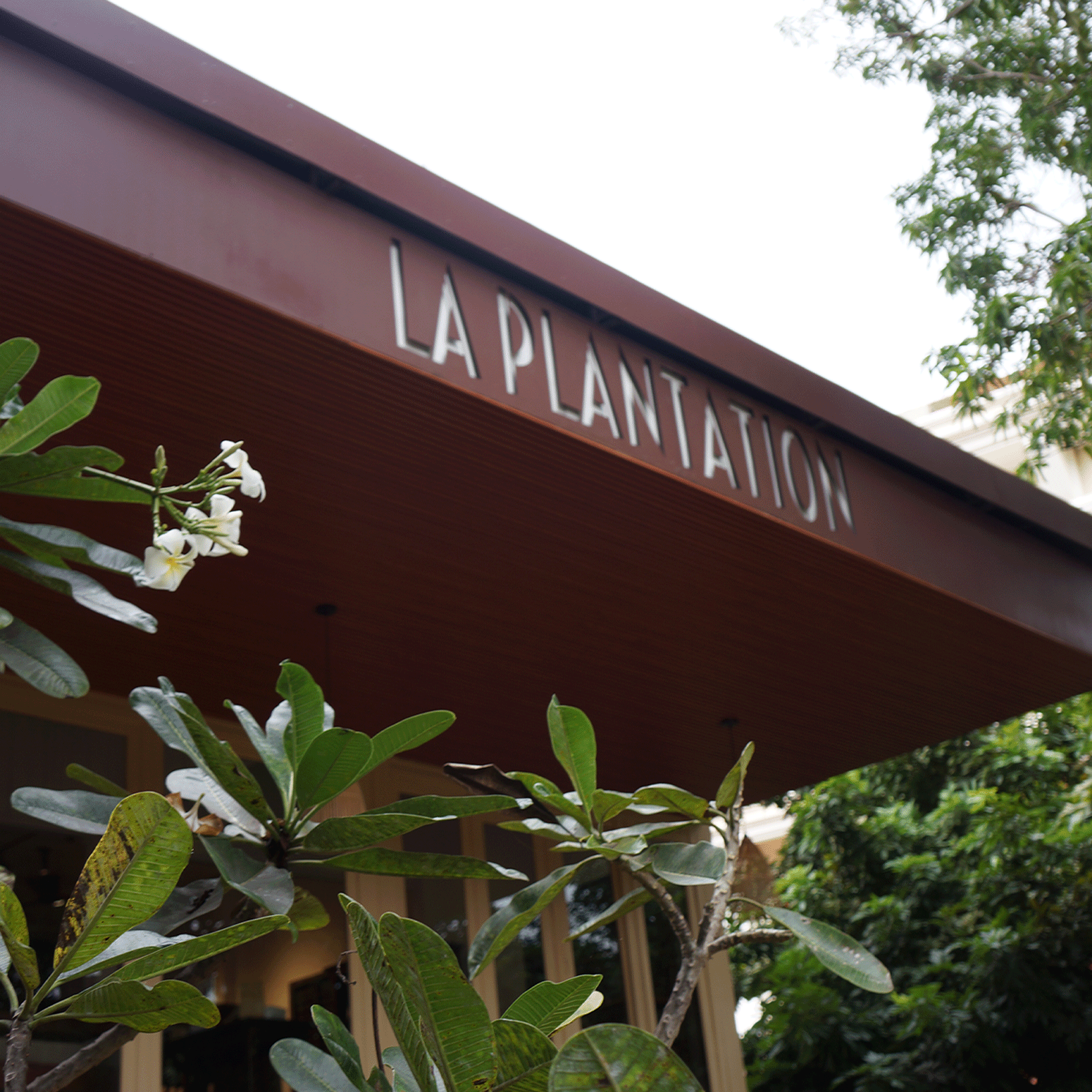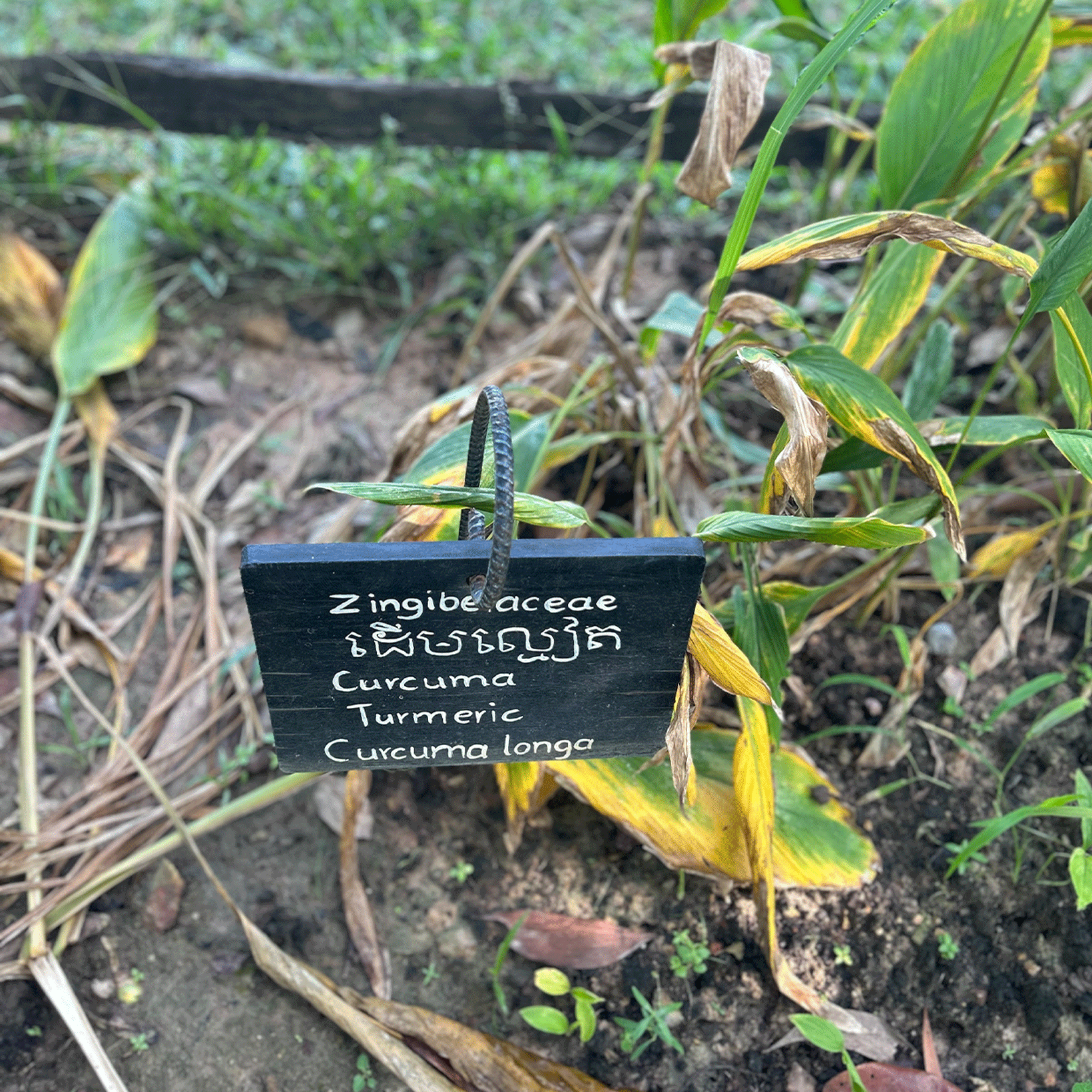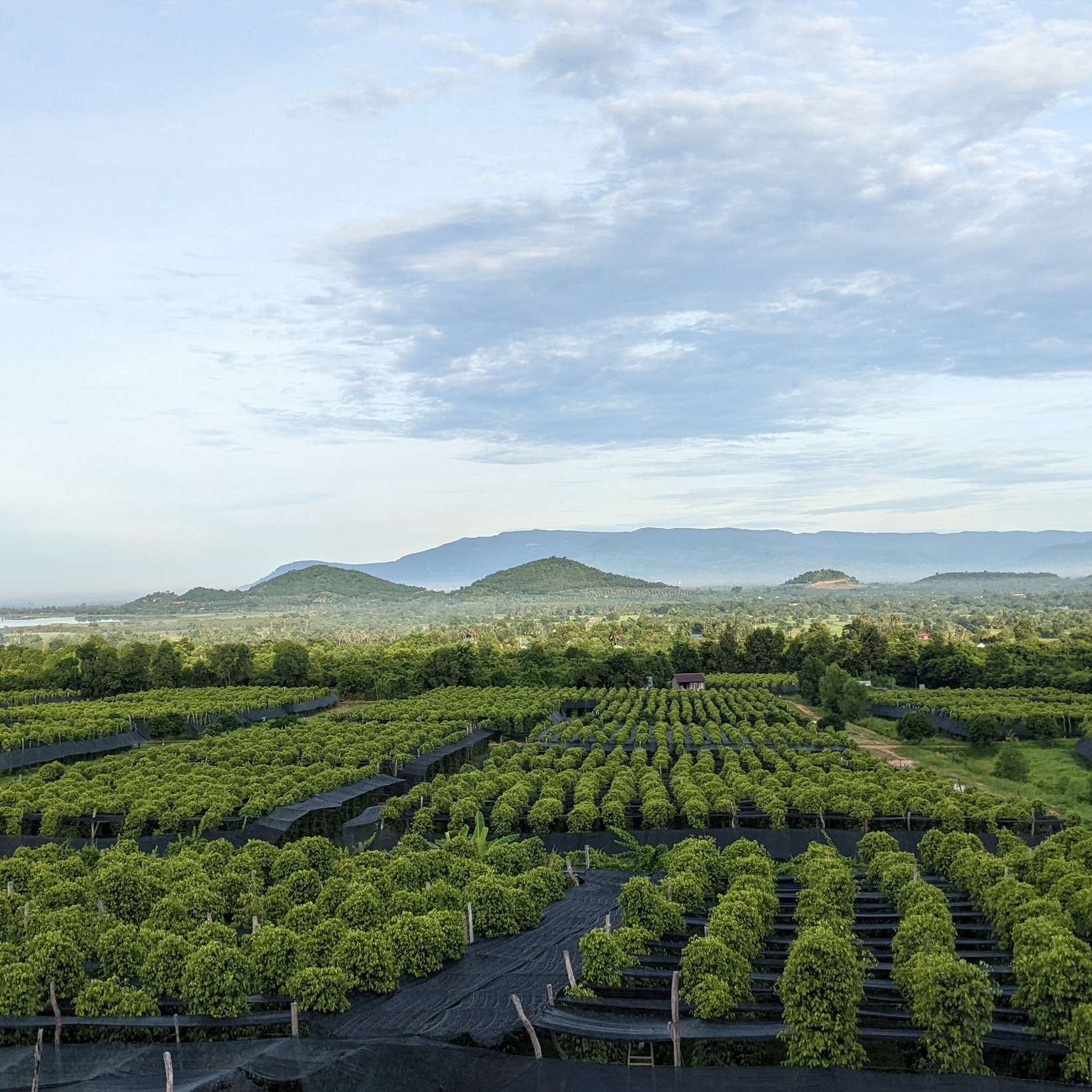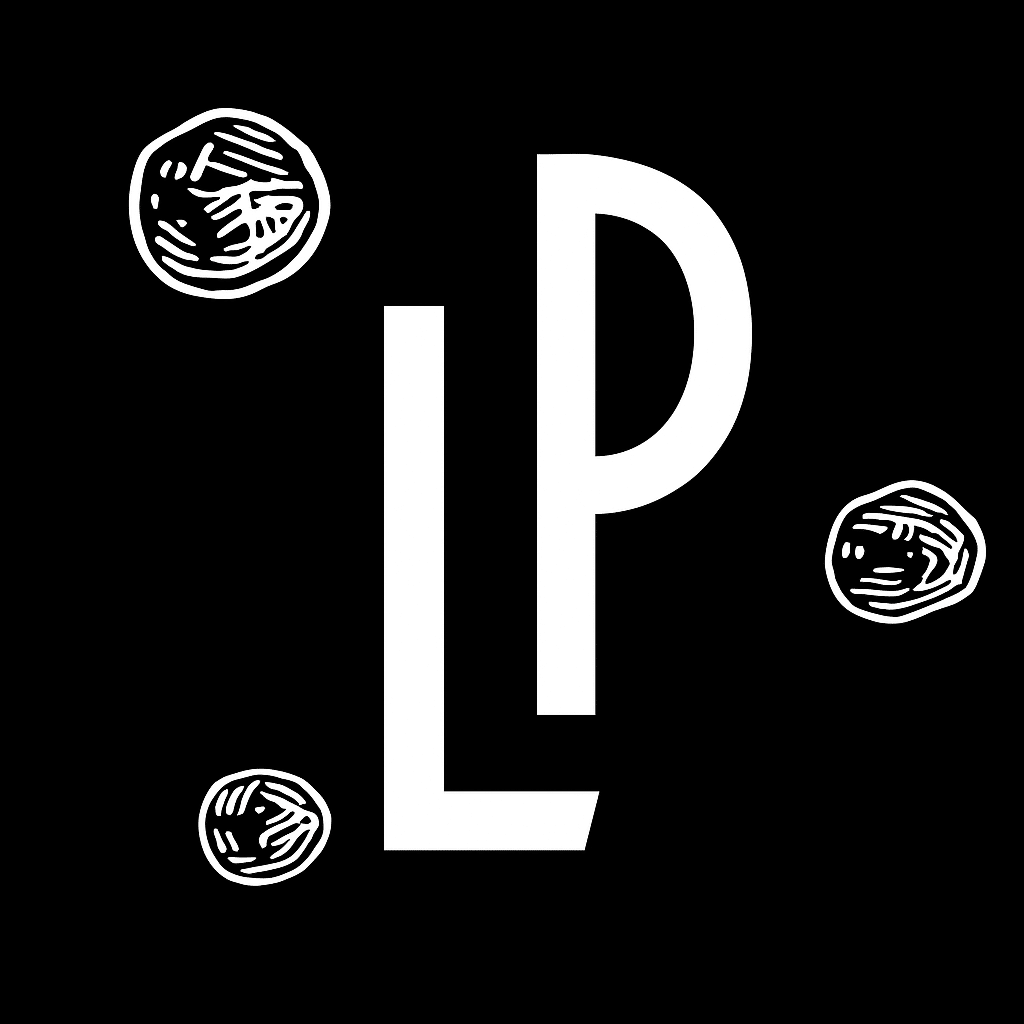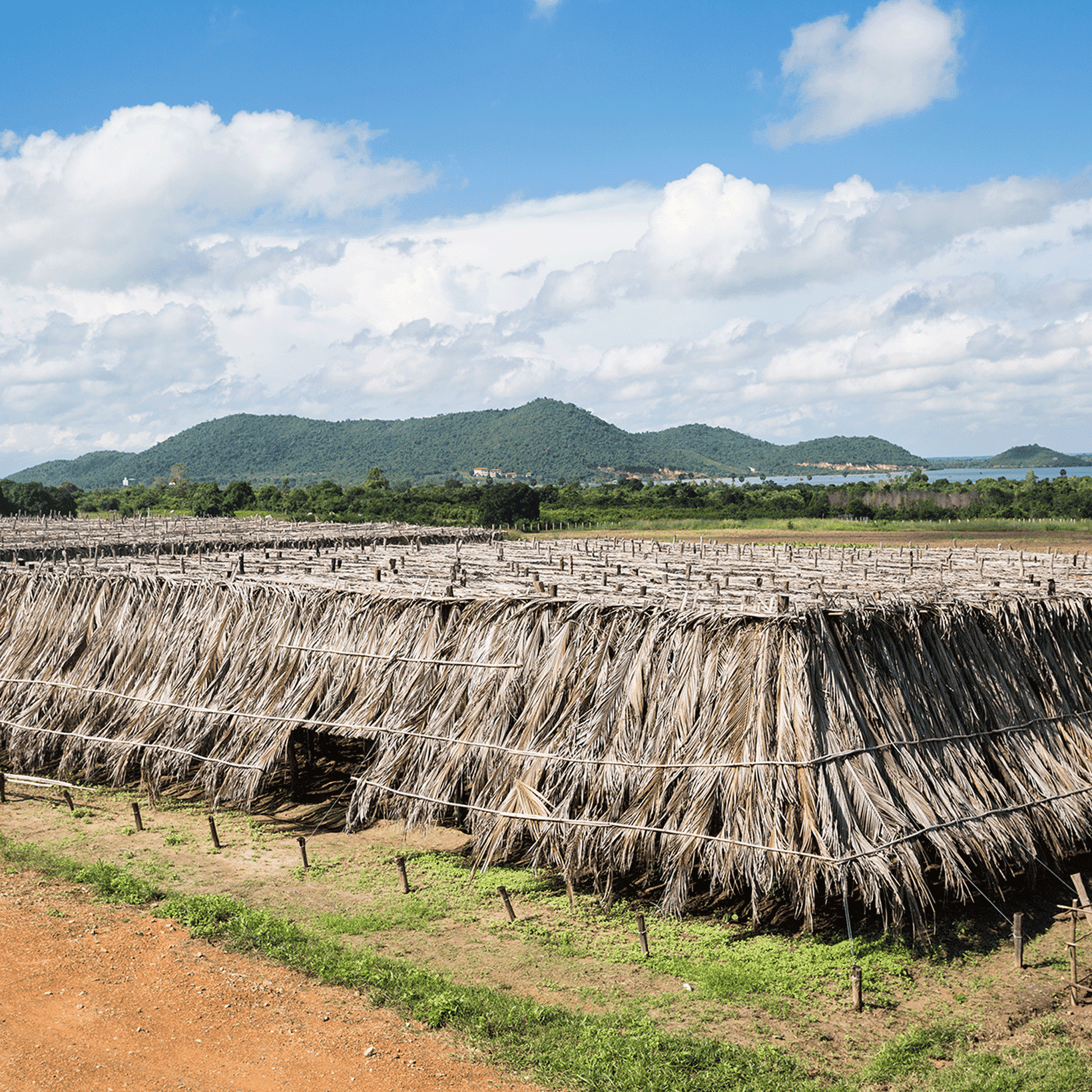
The Plantation: 10 years already!
This month, we celebrate the 10th anniversary of our arrival in Cambodia. Indeed, we discovered this beautiful country in February 2013. The tranquility of its rural landscapes and the kindness of its inhabitants touched us. We fell in love with it and imagined that we could contribute to the development of the country and of this rural region of Kampot province, in the southwest of Cambodia.
When we meet friends or visitors, we are asked a series of questions. We relate them here; before perhaps writing a book which will testify to the adventures which marked out our project…
What led you to embark on this project at the end of the world?
It’s true that nothing predisposed us to start an activity in Cambodia. We lived in London and had spent our entire working lives in the new technology sector (old-timers will understand when I say ‘in IT’). But you can’t do it over again, and the desire to undertake and put yourself in an unknown situation immediately tempted us during our stay in Kampot and our meeting with its famous Pepper. And going from the virtual to the real, in the food and spice sector, was the trigger for this desire to start an original project. We had received a lot and wanted to get involved in a social project in a rural community.
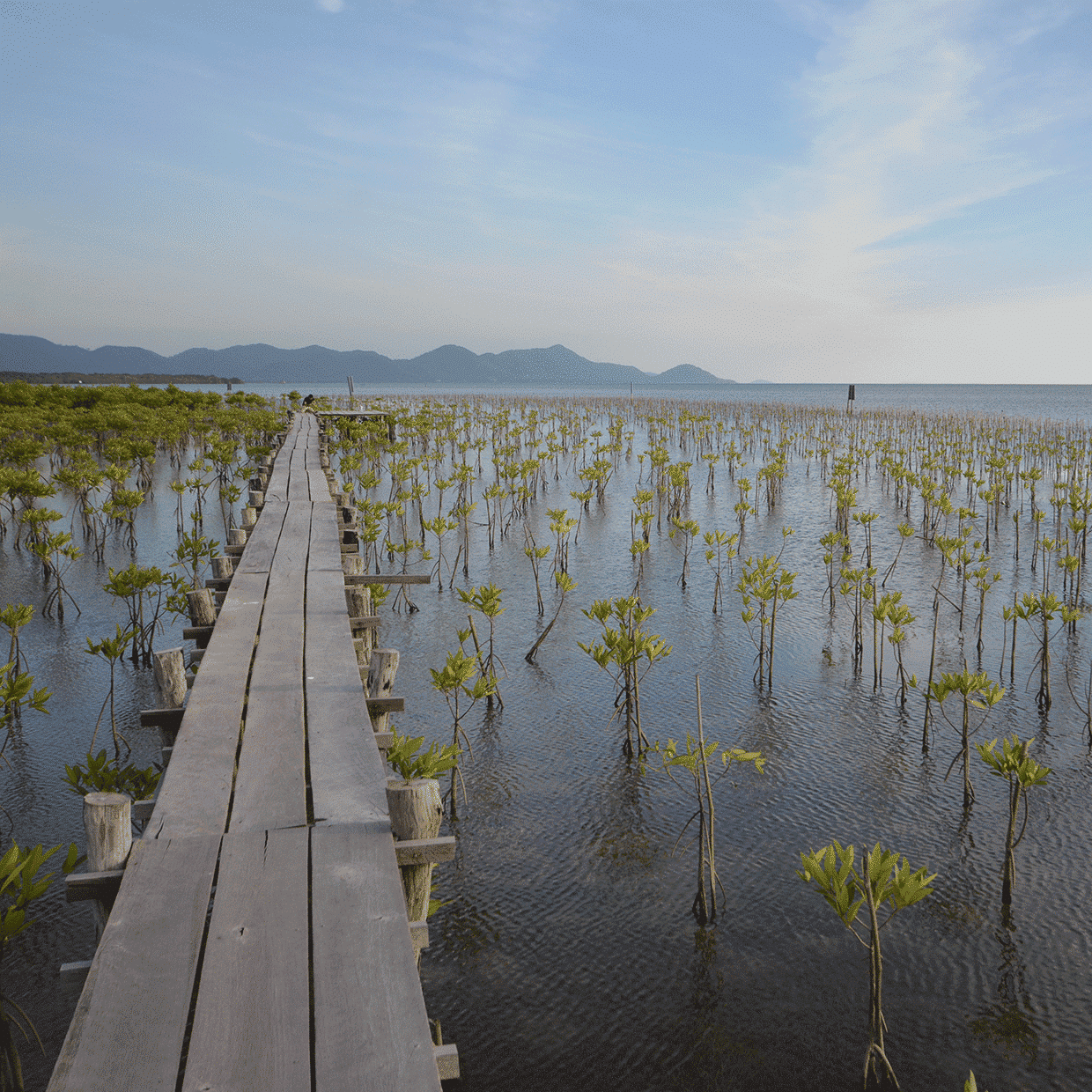
Did you have any experience in agriculture?
Apart from enjoying a garden and liking to walk by the sea, in the forest or in the mountains, we had no particular experience. From the start we surrounded ourselves with specialists from the region, descendants of long family traditions of pepper planters, like our farm manager. We have learned over the years and are still learning every day. To the traditional approach to Kampot Pepper farming that has flourished in the region since the 13th century, we have now brought in more modern scientific knowledge and methods, with Cambodian agricultural and food safety engineers.
How has your past experience been useful for this project?
The first point is that Guy and I have always worked together and we wanted to use our experience to create our personal project of this second life. We knew our strengths and weaknesses, how we complemented each other, and shared a common vision of the project. Our experience also allowed us to have a clear vision of the model we wanted to put in place by focusing our development on innovation and quality at all levels of the company.
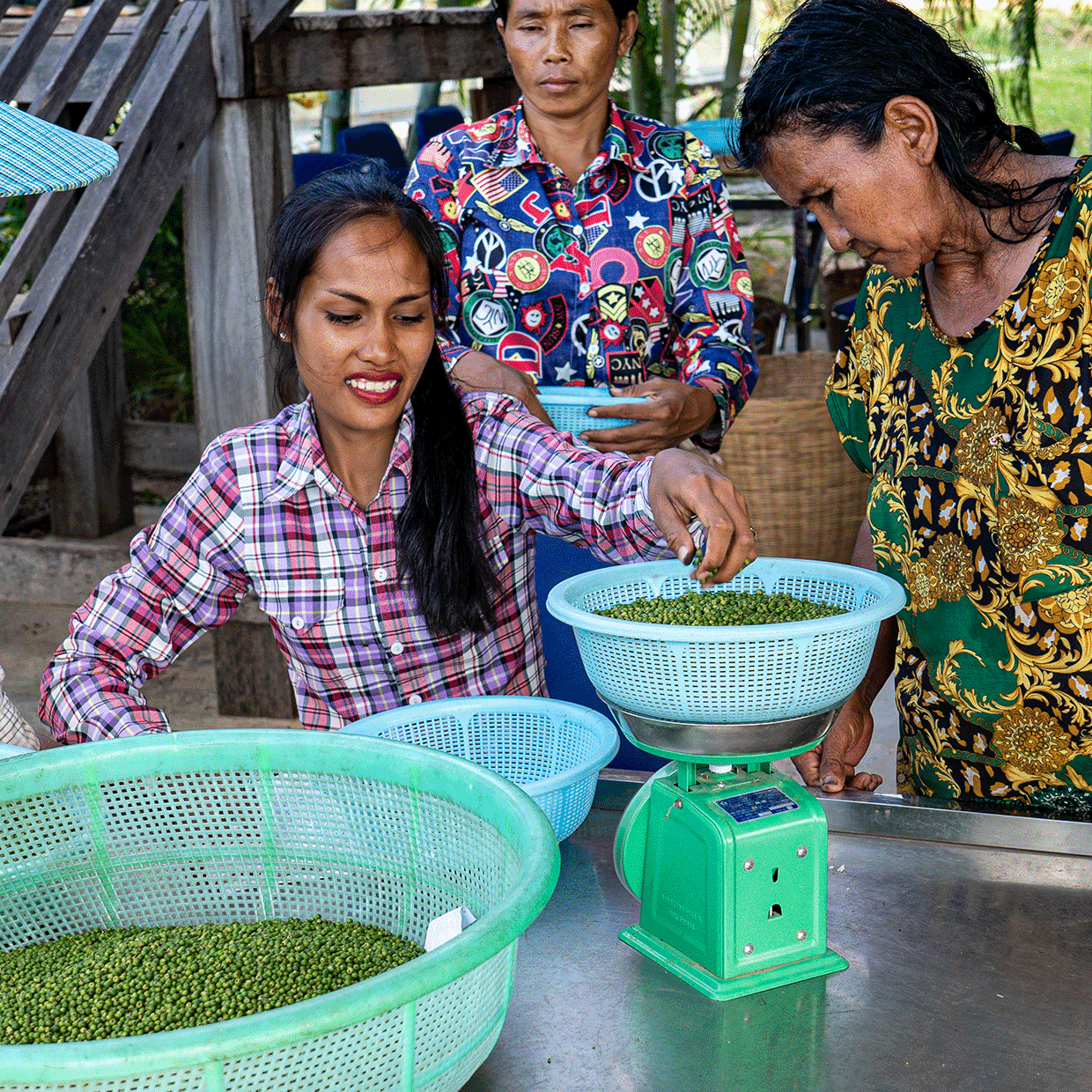
What major difficulties have you encountered in these ten years?
An agricultural project is a long-term investment project. And from this initial agricultural project, we are now making Cambodian spices known and known throughout the world. We had to master all the stages of the production and distribution chain, from the farm to the final consumer. That means a lot of different jobs to learn. But that is also what makes this project so rich. Of course, the pandemic was a difficult ordeal for us in 2020 and 2021; but in the end, we came out stronger than before. Losing 70% of our income overnight, we had to reinvent ourselves: discover new spices in the country, add new family farms to our network of small farmers, create new packaging, develop the international distribution network.
What feedback do you get that touches you the most?
Obviously, our pride comes from the academic success of the village children who are part of the programme supported by the Association Les Ecoles de La Plantation. The eldest of our students is entering university this year. And our daily reward is the beautiful smiles of our employees.
On the product side, the sparkling eyes of spice lovers when they put their noses into our spice jars to discover products with incredible aromas or when they bite into a grain of Fresh Kampot Pepper with Salt.
From our visitors to the farm, who have fond memories of their experience at La Plantation and share it by word of mouth, on social networks, by bringing back products for their families and friends, by coming to our trade fairs and temporary shops.
From our retail partners around the world who stand behind the quality of our spices and the social values of our project.

What is your advice for choosing good spices?
The freshness of the spices is the most important thing to consider. As a producer, we are lucky to be at the source. We process our spices on the day they are harvested, using a different and optimised process for each product. It is then packaged and shipped all over the world with organoleptic qualities recognised by all specialists.
So to buy good spices, look carefully at the label: understand where the product comes from, when it was produced and smell, taste! A spice loses its aromas in the air, and deteriorates with humidity and light. So choose spices that are well packaged and protected from light.
And what are your plans for the next 10 years?
As mentioned earlier, Covid has somewhat halted our momentum. Our next step is to make this project profitable. At the same time, we continue to innovate. The producer’s job is the most difficult in the spice chain, but the most wonderful. We have fantastic spices and plants available and are creating new products and blends that will be offered in the spring. It is our great pleasure to have these brainstorming and tasting sessions to develop each one. We still have a lot of ideas, motivation and desire to make this project evolve. See you in 10 years!
And until then, all you have to do is come and visit us in Cambodia and discover all the facets of our project at the end of the world!
Nathalie and Guy
The founders of La Plantation
